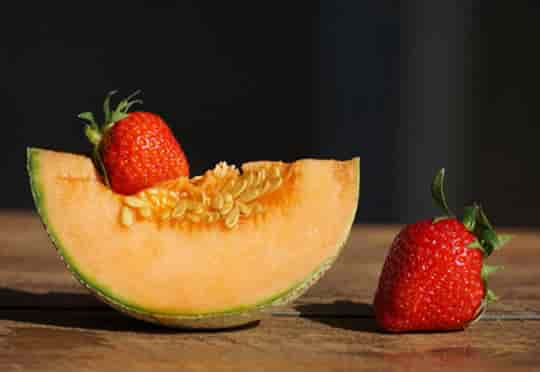Foods rich in this vitamin will improve muscle mass and prevent age-related muscle loss.
People with the best muscle mass tend to get lots of vitamin C, a study reveals.
Vitamin C is found in vegetables like red bell pepper and broccoli, citrus fruits including oranges, berries, cantaloupe, melon, and kiwi.
Vitamin C is crucial for building muscle and maintaining it as we get older, particularly over the age of 50.
Losing skeletal muscle mass is typical in older people which often results in a condition called sarcopenia.
Sarcopenia or muscles wasting can even effect persons in their 30s and those who have an inactive life.
The symptoms are decline in muscle size and function, weakness, difficulty with movement, poor balance, and so poor quality of life.
Professor Ailsa Welch, the study’s lead author, said:
“As people age, they lose skeletal muscle mass and strength.
People over 50 lose up to one percent of their skeletal muscle mass each year, and this loss is thought to affect more than 50 million people worldwide.
It’s a big problem, because it can lead to frailty and other poor outcomes such as sarcopenia, physical disability, type-2 diabetes, reduced quality of life and death.
We know that Vitamin C consumption is linked with skeletal muscle mass.
It helps defend the cells and tissues that make up the body from potentially harmful free radical substances.
Unopposed these free radicals can contribute to the destruction of muscle, thus speeding up age-related decline.
But until now, few studies have investigated the importance of Vitamin C intake for older people.
We wanted to find out whether people eating more Vitamin C had more muscle mass than other people.”
Researchers analysed data on 13,000 adult aged between 42 and 82 who participated in the European Prospective Investigation into Cancer and Nutrition study.
Along with calculating the participants’ skeletal muscle mass, their blood vitamin C levels were tested and their vitamin C intake was estimated using a seven-day food record.
Dr Richard Hayhoe, study co-author, said:
“We studied a large sample of older Norfolk residents and found that people with the highest amounts of vitamin C in their diet or blood had the greatest estimated skeletal muscle mass, compared to those with the lowest amounts.
We are very excited by our findings as they suggest that dietary vitamin C is important for muscle health in older men and women and may be useful for preventing age-related muscle loss.
This is particularly significant as Vitamin C is readily available in fruits and vegetables, or supplements, so improving intake of this vitamin is relatively straightforward.
We found that nearly 60 percent of men and 50 percent of women participants were not consuming as much Vitamin C as they should, according to the European Food Safety Agency recommendations.
We’re not talking about people needing mega-doses.
Eating a citrus fruit, such as an orange, each day and having a vegetable side to a meal will be sufficient for most people.”
The study was published in Journal of Nutrition (Lewis et al., 2020).

